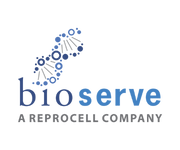CLINICAL DIAGNOSTICS
Comprehensive Cancer Panel
Next-generation sequencing (NGS) has significantly improved the understanding of various cancers and targeted treatment of cancer. Major advantage of NGS is the ability to assay multiple genomic variants from different genes (also known as panels) at the same time from limited amounts of clinical samples.
Comprehensive Cancer Panel examines 409 tumor suppressor genes and oncogenes frequently mutated in cancer. Our test covers over 15500 COSMIC (Catalogue of Somatic Mutations in Cancer) mutation targets across cancer driver genes, drug targets, signaling cascades, apoptosis, DNA repair, transcription regulators, inflammatory response, and growth factor genes in a single assay.
This test helps your oncologist in determination of personalized therapy and prognosis assessment.
What are the advantages Comprehensive Cancer Panel?
- Different individuals with the same cancer can respond differently to the same therapy and detecting genomic alterations gives a more complete picture of the cancer. Therefore, this test helps your oncologist in determination of personalized therapy best suited to your case or design a tailored treatment for each patient and prognosis assessment based on genomic profile.
- Our panels are Internally validated as a reliable and are cost-effective tool for detecting mutations, in a range of genes linked to reaction or resistance to targeted therapies.
- Prognosis and recovery planning for patients with solid tumours, both at the onset and as the disease progresses or recurrence.
- The panel can detect SNVs and Short-Indels with as little as a 5% mutant allele frequency. in genes of high prognostic and therapeutic significance like MET, ALK, TP53, APC, and PTEN.
Who needs this test?
Treating oncologists may refer patients to develop treatment strategies that target, specific tumour genome mutations, allow follow up of disease and understand the appropriateness of future second line treatments
Why Bioserve - REPROCELL India?
- Clinically relevant improvements and their interpretations and links to drug efficacy.
- Recommendations for targeted therapies or possible resistance mechanisms, and the prognosis and current clinical trials.
- High precision reporting with accuracy by ensuring all the quality requirements.
- Quicker Turnaround time, Competitive pricing and detailed clinical interpretations and links to drug response/efficacy wherever possible.
- The test has been validated in house and offers coverage range of 500-1000X.
Genes covered in this Panel
ABL1 ABL2 ACVR2A ADAMTS20 AFF1 AFF3 AKAP9 AKT1 AKT2 AKT3 ALK APC AR ARID1A ARID2 ARNT ASXL1 ATF1 ATM ATR ATRX AURKA AURKB AURKC AXL BAI3 BAP1 BCL10 BCL11A BCL11B BCL2 BCL2L1 BCL2L2 BCL3 BCL6 BCL9 BCR BIRC2 BIRC3 BIRC5 BLM BLNK BMPR1A BRAF BRD3 BRIP1 BTK BUB1B CARD11 CASC5 CBL CCND1 CCND2 CCNE1 CD79A CD79B CDC73 CDH1 CDH11 CDH2 CDH20 CDH5 CDK12 CDK4 CDK6 CDK8 CDKN2A CDKN2B CDKN2C CEBPA CHEK1 CHEK2 CIC CKS1B CMPK1 COL1A1 CRBN CREB1 CREBBP CRKL CRTC1 CSF1R CSMD3 CTNNA1 CTNNB1 CYLD CYP2C19 CYP2D6 DAXX DCC DDB2 DDIT3 DDR2 DEK DICER1 DNMT3A DPYD DST EGFR EML4 EP300 EP400 EPHA3 EPHA7 EPHB1 EPHB4 EPHB6 ERBB2 ERBB3 ERBB4 ERCC1 ERCC2 ERCC3 ERCC4 ERCC5 ERG ESR1 ETS1 ETV1 ETV4 EXT1 EXT2 EZH2 FAM123B FANCA FANCC FANCD2 FANCF FANCG FAS FBXW7 FGFR1 FGFR2 FGFR3 FGFR4 FH FLCN FLI1 FLT1 FLT3 FLT4 FN1 FOXL2 FOXO1 FOXO3 FOXP1 FOXP4 FZR1 G6PD GATA1 GATA2 GATA3 GDNF GNA11 GNAQ GNAS GPR124 GRM8 GUCY1A2 HCAR1 HIF1A HLF HNF1A HOOK3 HRAS HSP90AA1 HSP90AB1 ICK IDH1 IDH2 IGF1R IGF2 IGF2R IKBKB IKBKE IKZF1 IL2 IL21R IL6ST IL7R ING4 IRF4 IRS2 ITGA10
ITGA9 ITGB2 ITGB3 JAK1 JAK2 JAK3 JUN KAT6A KAT6B KDM5C KDM6A KDR KEAP1 KIT KLF6 KRAS LAMP1 LCK LIFR LPHN3 POT1 LPP LRP1B LTF LTK MAF MAFB MAGEA1 MAGI1 MALT1 MAML2 MAP2K1 MAP2K2 MAP2K4 MAP3K7 MAPK1 MAPK8 MARK1 MARK4 MBD1 MCL1 MDM2 MDM4 MEN1 MET MITF MLH1 MLL MLL2 MLL3 MLLT10 MMP2 MN1 MPL MRE11A MSH2 MSH6 MTOR MTR MTRR MUC1 MUTYH MYB MYC MYCL1 MYCN MYD88 MYH11 MYH9 NBN NCOA1 NCOA2 NCOA4 NF1 NF2 NFE2L2 NFKB1 NFKB2 NIN NKX2-1 NLRP1 NOTCH1 NOTCH2 NOTCH4 NPM1 NRAS NSD1 NTRK1 NTRK3 NUMA1 NUP214 NUP98 PAK3 PALB2 PARP1 PAX3 PAX5 PAX7 PAX8 PBRM1 PBX1 PDE4DIP PDGFB PDGFRA PDGFRB PER1 PGAP3 PHOX2B PIK3C2B PIK3CA PIK3CB PIK3CD PIK3CG PIK3R1 PIK3R2 PIM1 PKHD1 PLAG1 PLCG1 PLEKHG5 PML PMS1 PMS2 POU5F1 PPARG PPP2R1A PRDM1 PRKAR1A PRKDC PSIP1 PTCH1 PTEN PTGS2 PTPN11 PTPRD PTPRT RAD50 RAF1 RALGDS RARA RB1 RECQL4 REL RET RHOH RNASEL RNF2 RNF213 ROS1 RPS6KA2 RRM1 RUNX1 RUNX1T1 SAMD9 SBDS SDHA SDHB SDHC SDHD SEPT9 SETD2 SF3B1 SGK1 SH2D1A SMAD2 SMAD4 SMARCA4 SMARCB1 SMO SMUG1 SOCS1 SOX11 SOX2 SRC SSX1 STK11 STK36 SUFU SYK SYNE1 TAF1 TAF1L TAL1 TBX22 TCF12 TCF3 TCF7L1 TCF7L2 TCL1A TET1 TET2 TFE3 TGFBR2 TGM7 THBS1 TIMP3 TLR4 TLX1 TNFAIP3 TNFRSF14 TNK2 TOP1 TP53 TPR TRIM24 TRIM33 TRIP11 TRRAP TSC1 TSC2 TSHR UBR5 UGT1A1 USP9X VHL WAS WHSC1 WRN WT1 XPA XPC XPO1 XRCC2 ZNF384 ZNF521
Specimen Requirements
Tumour Tissue (FFPE tissue: Paraffin block is preferred; percentage of tumour in the specimen should be ≥30%) or biopsy.
Our Other Panels!
We offer several cancer panels depending upon the needs of the Oncologists, these include..
BRCA 1/2 Gene Testing
BRCA panel for testing mutations in BRCA1 and BRCA2 genes
Lung RNA Fusion Panel
Lung RNA fusion panel for detecting gene fusions in major driver genes
BRCA Extended Panel
Profiling of 15 genes associated with hereditary Breast and Ovarian cancer, pancreatic and prostate cancer
Hereditary Cancers panel
Profiling of >140 genes associated with inherited cancers
